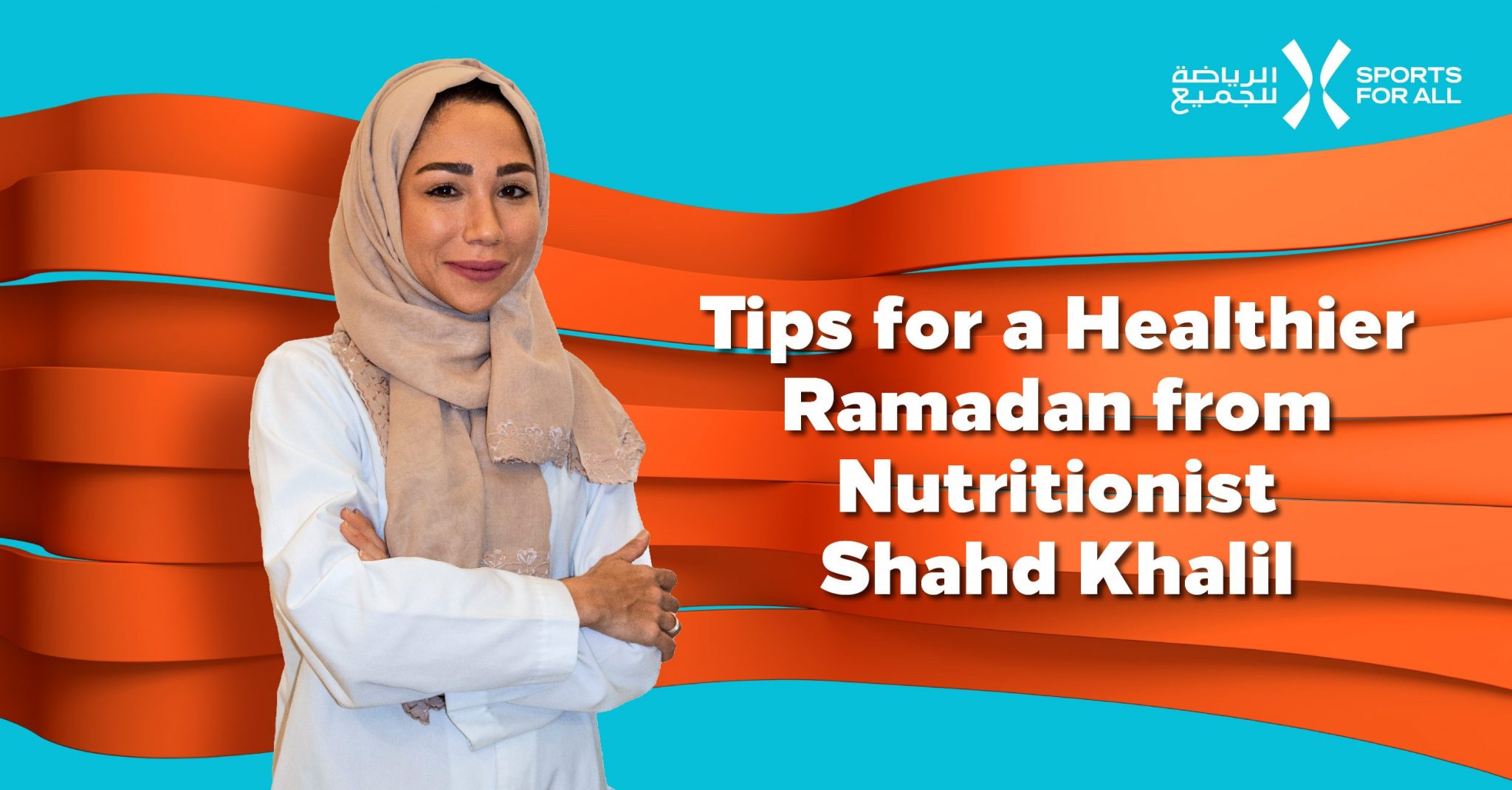Nutritionist Shahd Khalil shares her tips for a healthy Ramadan
Ramadan, not only a practice in spiritual reflection and self-improvement, is an opportunity to improve your diet and introduce diversity, balance, and moderation which will enhance your health and help you make healthier choices even after Eid.
According to nutritionist Shahd Khalil, eating healthy requires a diverse mix of complex carbohydrates, such as soup, oats, or lentils, which are also rich in fiber that helps you satiate. Felling fuller for longer will help you avoid hunger pangs and cravings. It’s equally important to eat servings with a balance of protein with vegetables, and starches with fats.
Moderation is essential. During Ramadan the body gets used to eating two or three meals a day versus four to six, so sweets and beverage intake should be carefully controlled. Shahd added some useful options when following a healthy diet over Ramadan:
Skip the juice but stay hydrated
Juices or malt subia are poor sources of fiber and contain a high percentage of sugar, artificial colors, and flavors. You are much better off eating fruit instead. However, you still have to drink enough liquid to stay hydrated and compensate the body for the loss of water during the day, so sip water gradually during the breakfast period until Suhoor. Men need around 3.7 liters per day, and women need approximately three.
Divide breakfast into smaller parts
Split your breakfast meal into three smaller meals. Start drinking water and having a couple of dates. Water rehydrates you and dates provide energy, as well as dietary fiber and various minerals and vitamins. Next, have some soup and oven-baked samosas, which have almost half the calories of their fried counterparts. Finally, enjoy a main meal of carbohydrates, such as rice, pasta or quinoa, and a type of protein, such as lentils or beans or any type of legumes with a type of cooked or fresh vegetables.
More fruit, less fried foods
Fresh fruit and vegetables help to regulate the digestive process and help to maintain the water content in the body, so make a point of increasing these in your diet. Try to cut back on fried foods and fatty sweets, which can be popular gifts during the Holy month, because they have high calories and can lead to the risk of chronic diseases such as diabetes, stress, and obesity.
Keep it moving
Granted, the period of fasting means that you are unlikely to be at your most active and energetic, but it is important to get some exercise in over the 30 days. Even if you’re not quite up for a full session in the weights room or a high-velocity HIIT workout, try something a little gentler on the body. Keeping active helps to improve your health, as it reduces digestive symptoms and constipation, strengthens the immune system, stimulates blood circulation, and it helps to keep your blood sugar regulated.
Equally important to remember is to be gentle with yourself. Fasting can be a challenge on the body so it’s important not to expect yourself to perform at your usual levels. Take it slowly, refuel with healthy, nutrient dense food and enjoy the opportunity to give your body a reset.
This Healthy Living article was developed by Nutritionist Shahd Khalil in partnership with the Saudi SFA






